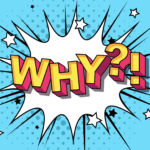* required field

When I lean in for a reading conference with a student (who is reading an informational source), I always start by asking her to tell me a little bit about what she is learning from the source. I say, “Tell me what you learned in this section” or, in the case of narrative nonfiction, “What …Read more

“Why can’t I just highlight? Why do I have to annotate?” Ever heard that from a student? I don’t have to convince you of the value of annotating, but we do need to remind (and even convince) students that annotating a source can help us monitor for meaning. Annotating can help us make sense of …Read more

When reading multiple sources, noticing the author’s purpose can help a student 1) remember the content of the source and 2) begin to notice the similarities and differences of sources. I’ve created a Padlet with a text set on recycling – one for each type of author’s purpose (e.g. P.R.I.D.E.) (4th-8th grade). Please feel free …Read more
Noticing an author’s purpose helps us 1) determine what’s important in a source, 2) begin to think critically about the information in a source, and 3) remember what we read. What follows are a few recommendations for teaching “author’s purpose.” Integrate WHY into your discussions of author’s purpose The WHY of noticing an author’s purpose …Read more

Have you ever asked a reader to tell you about what they learned in a short nonfiction book or article and they do one of the following? Give you a few miscellaneous (not related to each other) facts? Talk about the last fact they read? Share facts you discussed during the preview of the source? …Read more
What do you do when emergent-early stage readers can’t decode a word because it’s not in their vocabulary? In a previous entry, I wrote about holding emergent and early stage readers accountable for word-solving (as much as possible) before offering support including telling providing an unfamiliar vocabulary word. For example, one student figured out “off” …Read more
Ever notice a young reader get stuck on decoding a word in a text because the word is not in his or her vocabulary? Or maybe the student has heard the word, but not frequently, and it’s not easily retrievable? This can be a big problem for young readers of nonfiction at the emergent (DRA …Read more
Researching and writing my newest book has made it hard (UGH!) for me to teach with one source on a topic anymore. Anytime I plan a lesson with one informational source, I just want to know more about the topic of that source. And, if the topic is engaging (or we make it engaging), I …Read more
Recently I had the honor of talking with Sara, a teacher in Iowa, whose students have started using inquiry charts. In a nutshell, these charts help students determine what is important and organize their notes as they read-view-listen to multiple sources. (If you’re not familiar with inquiry charts, please check out an article I wrote …Read more
During conferences, while I do listen to what students are saying, I also listen for what they are NOT saying. This is why. Frequently when you ask a student to tell you what they have learned from a complex informational source (or a part of a source), they will talk about content they understood without …Read more